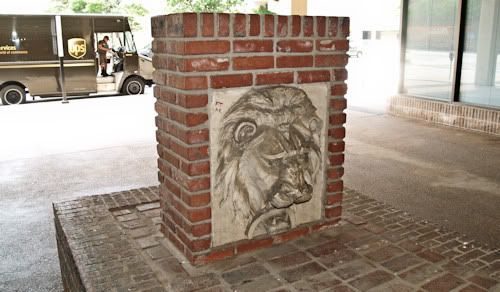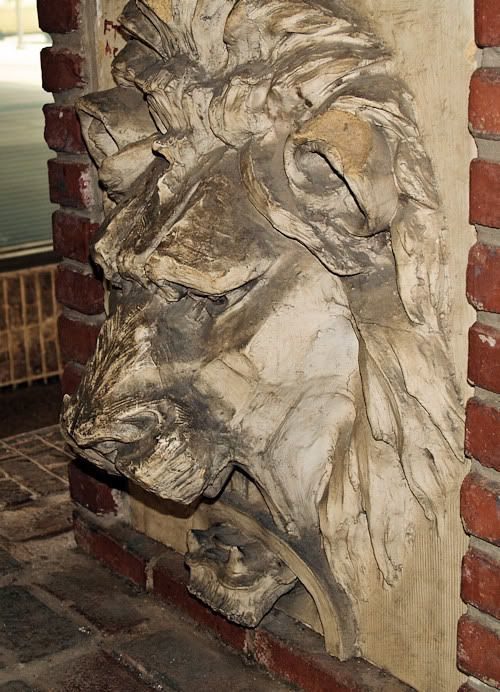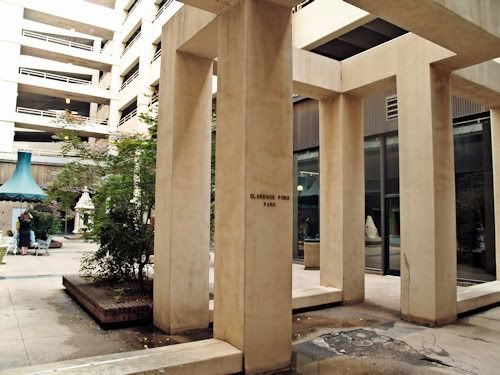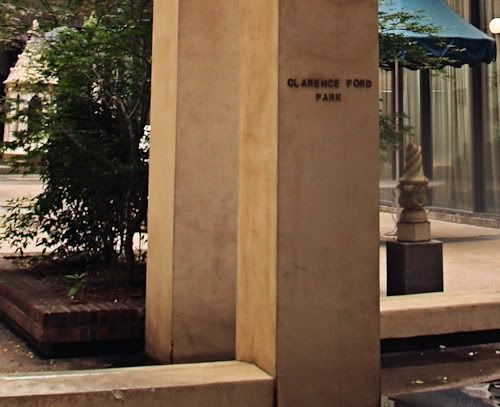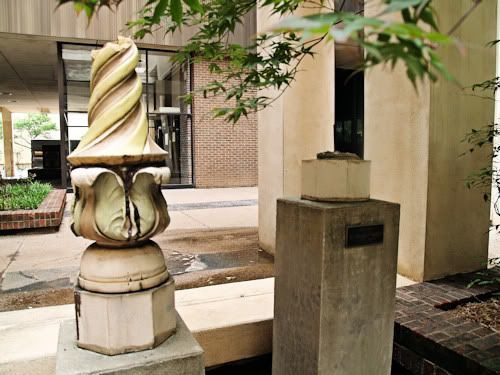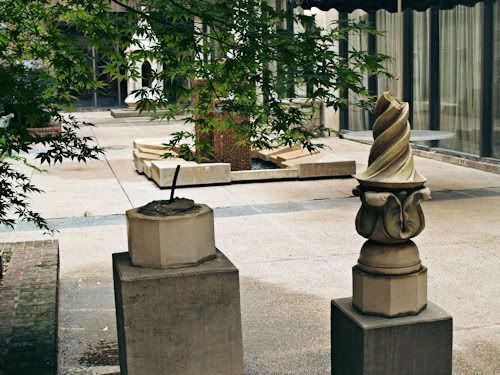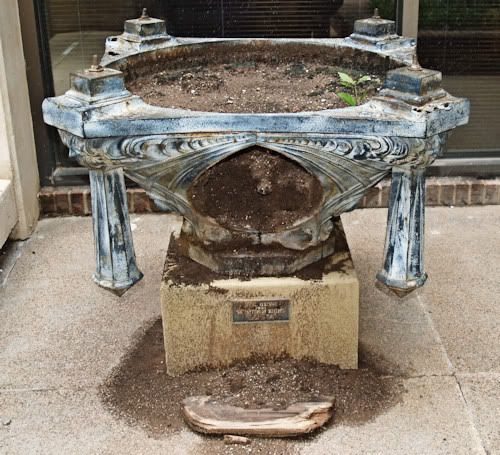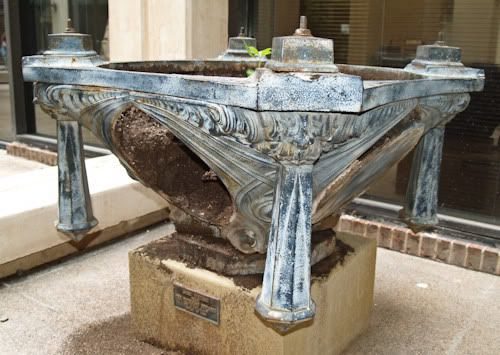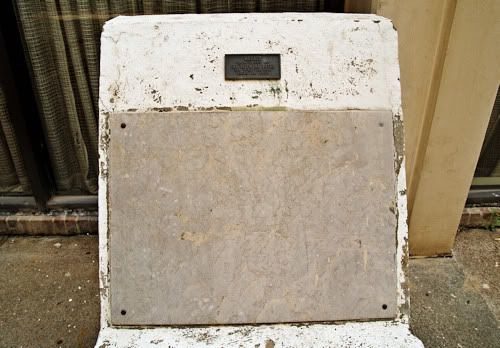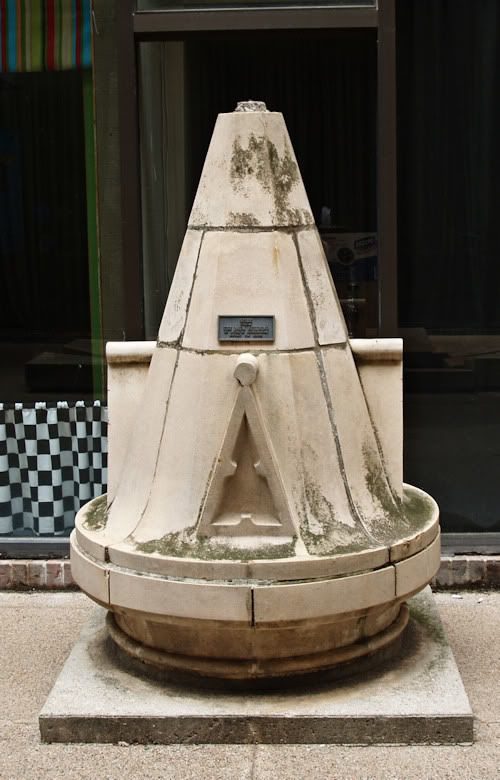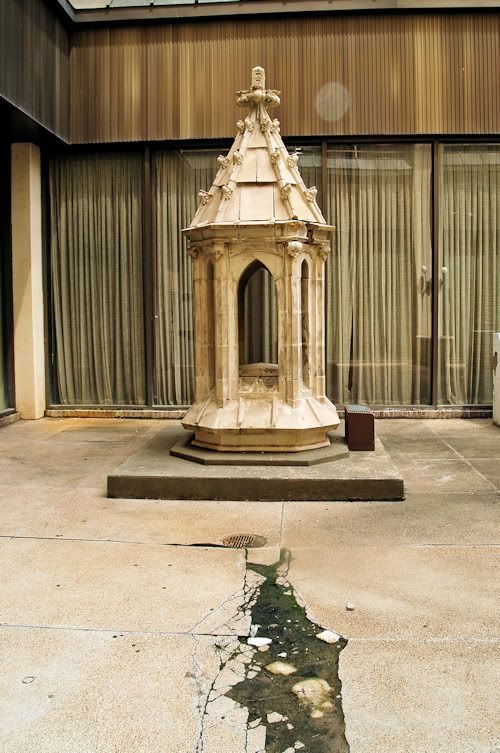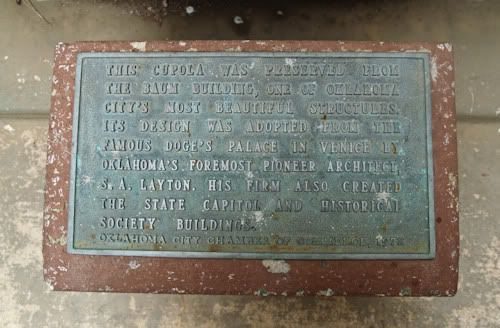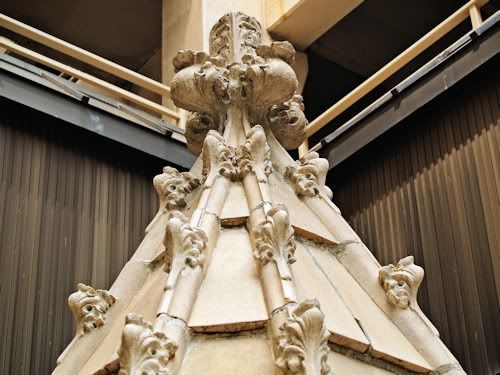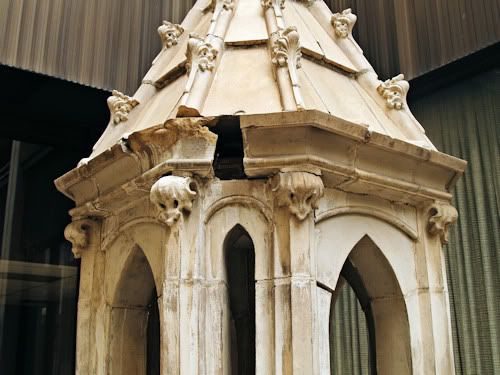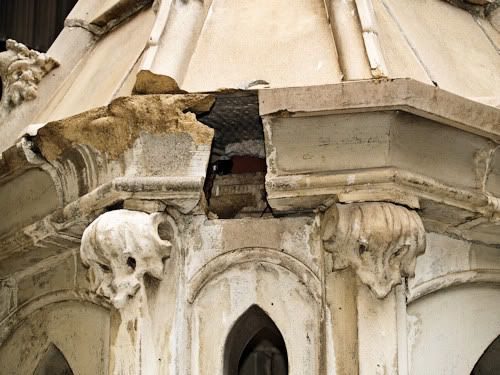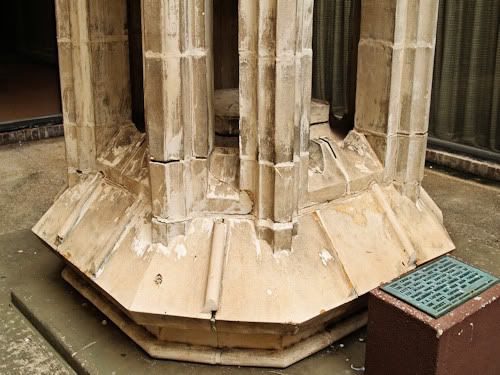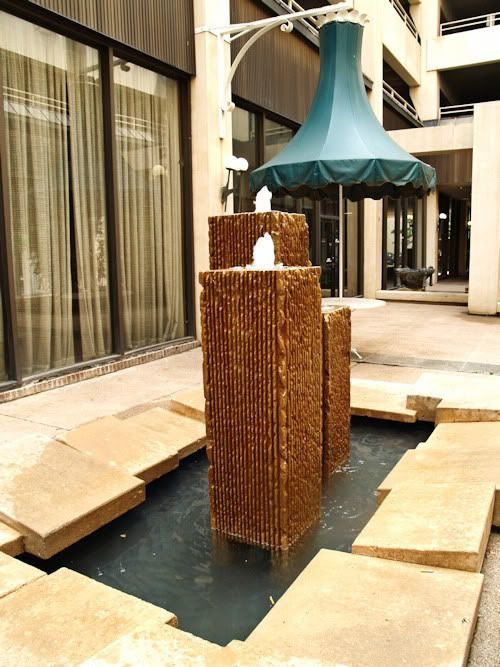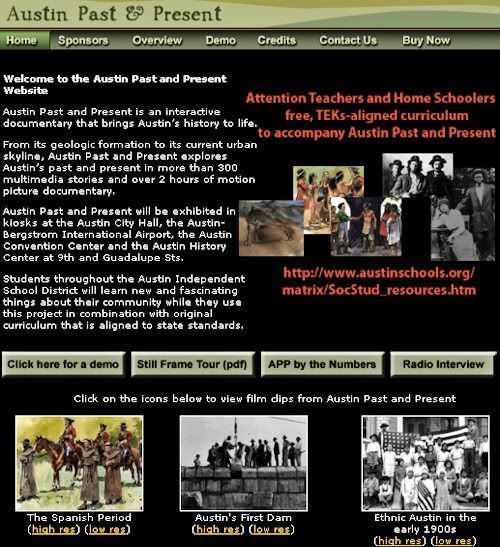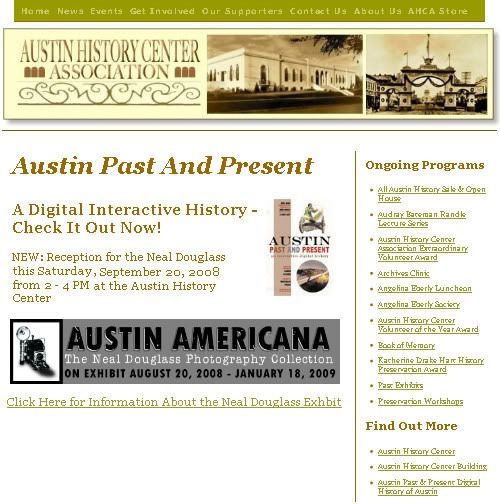… subtitled …
(instead of one of these)
(5/9/09 update … or the Austin Model as food for thought)
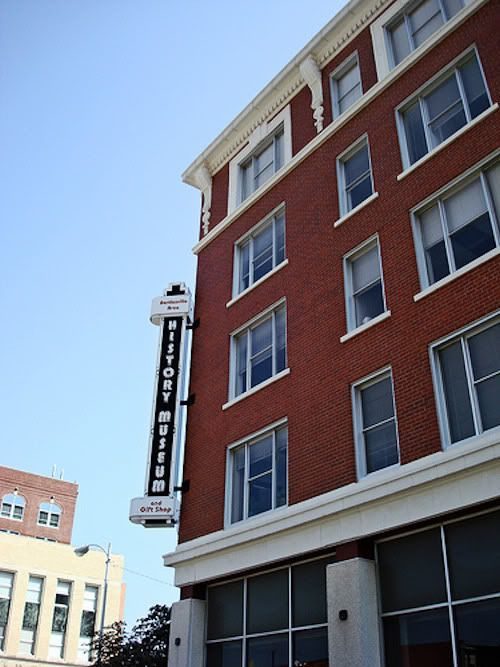
What you’re looking at above is the signage and exterior of the Bartlesville Area History Museum, a 10,000 sq. ft. facility presently located on the top floor of the City Center, a historic building that once was home to the Hotel Maire during the Bartlesville oil boom. According to the museum’s website, it was established in 1965 …
… to ensure the collection, preservation, and exhibition of the rich and varied history of Bartlesville and the surrounding areas. A collection of artifacts, historical objects, photographs, art illustrations, and files that focused on the development of these communities were obtained. Since then, the Museum has continued to collect and display items related to area history. Today, the Museum collection includes thousands of photographs, artifacts, and documents that tell the story of Bartlesville and surrounding areas—the first glass bottle made in Oklahoma was produced by the Great Western Glass Factory, bricks engraved with “Bartlesville, I.T.” paved the roads of the early community; a piece of casing from the Nellie Johnstone No. 1 recalls the oil boom; a cowboy hat worn by an attendee of the famous Cowtheives and Outlaws Reunion at Woolaroc—these and many more artifacts and documents represent more than 100 years of history.
So, what’s the deal? If Bartlesville had one of these 44 years ago, at least as to its point of beginning, I ask again,
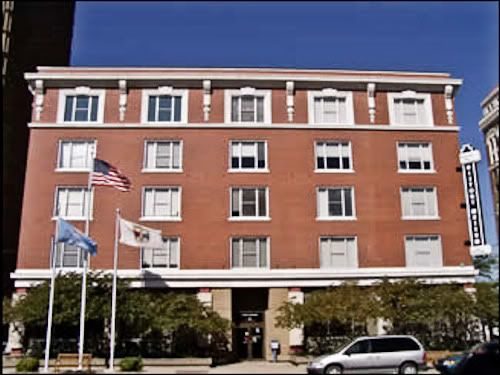
Truth is, in this respect, Oklahoma City has been upstaged by our B’Ville cousin located 47 miles north of Tulsa for 44 years now. In 2010, the number will be 45.
Without any doubt, Oklahoma City is blessed with excellent history museums including the Oklahoma History Center, the National Cowboy & Western Heritage Museum, the Oklahoma Heritage Association’s Gaylord-Pickens Museum, as well as others.
So, what’s missing in the above names? Two conjoined words: Oklahoma AND City. Just like Mayor Mick Cornett said during lease negotiations when it appeared that chances were good for Oklahoma City to get an NBA team only one spring season ago, he didn’t care that much what the team name was as long as the name included two words, “Oklahoma City.”
To be sure, one other outstanding museum does include those words, but it’s about art, not history, the Oklahoma City Museum of Art. What’s missing in our city is one of those things which is dedicated to Oklahoma City HISTORY so that, when time passes after the museum/center is established, the museum’s website might read that the center was established …
… to ensure the collection, preservation, and exhibition of the rich and varied history of Oklahoma City and the surrounding areas. A collection of artifacts, historical objects, photographs, art illustrations, and files that focused on the development of these communities were obtained. Since then, the Museum has continued to collect and display items related to area history.
You might ask, “Why not just go visit the existing museums located in the city? Isn’t that good enough?”
Those are fair questions. I have three reasons for saying, “No, that’s not good enough.” They are …
- Lack of Focus. Those fine institutions lack an Oklahoma City focus. In their comprehensiveness, you won’t find a department within them which is labeled, “The Oklahoma City …” room, suite, floor, collection, whatever. That just doesn’t exist. One has to dig and search to find the pieces, if you know where to look.
- Lost in the Shuffle. Donations of artifacts, photos, etc., to comprehensive groups get lost in the shuffle and often get shelved into places that you could never see even if you wanted to.
- Pay Me. With some, and I’m thinking about the Oklahoma History Center (love it as I do), if you want a copy of something, you have to pay to get it — I’m talking about both its on-line and paper images. Paper is fair; on-line images, well, that’s just plain wrong.
The Oklahoma City History Center that I’m thinking about would have an internet presence which would include on-line photographs of at least medium resolution (say, 1024 px wide) of everything that’s there … a shoplifter’s paradise … free distribution to anyone that wants it. As I see it, Oklahoma City history should be so accessible as to slap a person in the face saying, “Take me, take me, I’m yours!” Perhaps that’s not the best metaphor, but you get my drift.
Oklahoma City history shouldn’t be hoarded by tax-exempt donees and then be doled out to others on a get-as-you-pay basis. It should be freely and readily available to anyone that wants to have it. Just because a donor freely donates something to a public-based collection doesn’t entitle the donee to slap a copyright notice on what has just been given by someone whose only motivation was to share his/her stuff with everyone else who might be interested. As far as I’m concerned, that’s a misuse and abuse of copyright claims. If I take a photo and want to claim copyright for what I did, that’s my business. But, if I am given a photo by someone else, it is not my privilege to make such a claim. The Oklahoma History Center does this routinely. Whether you’ve noticed it or not, no such restrictions exist in Doug Dawgz Blog — if it’s here, anyone can have it.
Where would the stuff for an Oklahoma City History Center come from? It would come from you. It would come from me.
The Bartlesville Museum doesn’t purchase anything. It exists because B’Ville citizens care enough about their history to make donations from their own personal collections of memorabilia. It’s website reads,
In response to not having specific items, the museum collection is made up of donated items. If it has not been presented to the museum, then we “do not have one.”
By donating “your stuff” to the museum, you are helping to fulfill the Mission of the Bartlesville Area History Museum which is, “to ensure the collection, preservation and presentation of the history of Bartlesville and the surrounding areas of Washington County” and to provide access to Bartlesville area history and historical educational opportunities for people of all ages.”
That’s a good model to follow, I’m thinking. Scores if not hundreds of Oklahoma Citians and others still living would likely find great personal pleasure and satisfaction in donating their historical photos and artifacts to an organization which is principled along the lines I’ve just mentioned.
At least one similar but substantially different antecedent exists in Oklahoma City about what I’m suggesting here, and that is the activity of the Criterion Group. It was formed, I think, in 2002. Its purposes were more limited than what I have in mind in that its focus was on historical preservation as opposed to historical presentation.
At OkcHistory.com, Steve Lackmeyer and Jack Money wrote this about the Criterion Group which takes its name from the once-glorious Criterion Theater:
The Criterion Group is currently inactive, but in previous years its members played a key role in fighting to save some of the city’s endangered historic structures. The preservation community has had both success stories and heartbreaks. They successfully united to save the Walnut Avenue Bridge in Bricktown and the Gold Dome at NW 23 and Western. But they were unable to save the downtown YMCA or the Belle Isle plant. Their mission was to advance historic preservation efforts within Oklahoma City’s historic Grand Boulevard Loop.
But, even were the group active, its purposes did not include the formation of an Oklahoma City History Center/Museum.
It’s not that we ain’t got good stuff. Ever been to Clarence Ford Park … in downtown … WHAT? YOU NEVER HEARD OF IT?
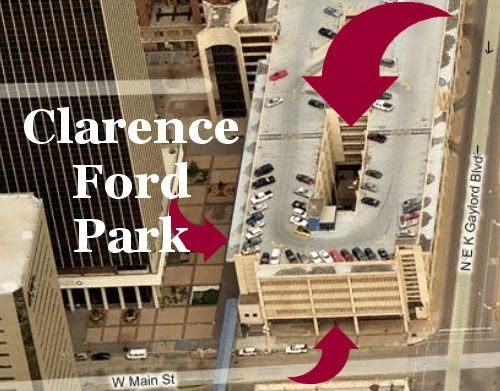
In 1976 when the Greater Oklahoma City Chamber of Commerce’s offices were still located in the Santa Fe Plaza, it decided to create a mini-park in a small cove formed between the parking garage and the strip of offices to its west. If one is good enough, one might parachute in, but it’s probably better to enter from Main Street or from the plaza. The park opened April 22, 1977.
The idea was to display artifacts of buildings from the city’s past, buildings destroyed during the urban renewal era. A nice little fountain was added, a few trees and a few places to sit — you might say that it was a mini-Oklahoma City history museum, and, while nothing fancy, it was a good idea and good of the Chamber to do.
But, in 1993, Mrs. C. Harold Brand donated the property at 123 Park Avenue to the Chamber and, following renovations, the Chamber moved to that more prestigious location in 1994. No one was left to care for the park on a regular basis. In the following September 14, 1994, Oklahoman article, Mary Jo Nelson wondered what could be done to save the historic remnants.
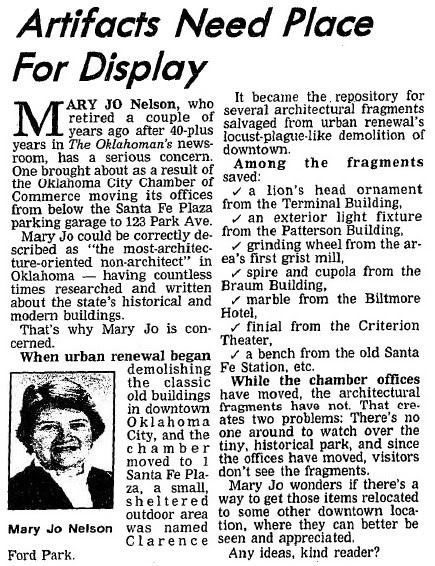
In an August 6, 2005, Oklahoman article, Jennifer Lee wrote:
Ten years after the chamber’s relocation, no one watches over the dilapidated park, and its hidden position conceals the artifacts from visitors, residents and business people.
Dean Schirf, the chamber’s corporate secretary, remembers when people used to visit the site, called Clarence Ford Park. “People used to come in with brown bag lunches,” Schirf said. “It was a very nice setting, a very attractive little courtyard that was frequented quite often by downtowners. Of course all that came to a conclusion when the chambers moved.”
Since the above 1994 article was written, there were several who talked the talk but none have walked the walk, and the stuff that hasn’t been ripped off or injured by vandals is sitting there where it has been since 1976-77.
Have a look. These pictures were taken today, May 8, 2009. Click on most for larger views.
From The Terminal (Streetcar) Building
When Approaching The Park From Main Street
Looking North Into The Park
When I arrived around noon, a young couple was making out. My presence and camera doubtless chilled young love. Sorry, but history marches on.
They are barely visible at the left.
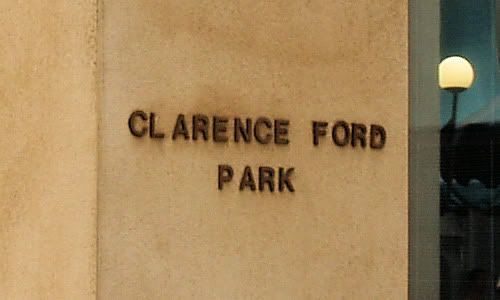
What Remains of Crumbling or Stolen
Finials From The Criterion Theater
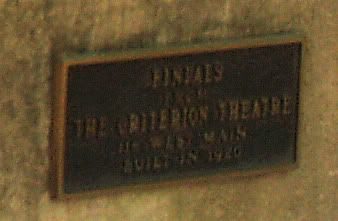
Deteriorating Ornate Light Fixture
From The Elegant 1910 Patterson Building
Apparently Used As An Ashtray
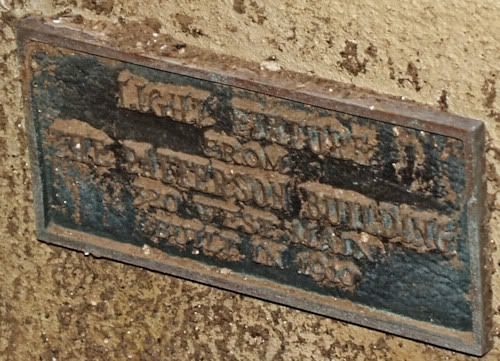
Not Sure What Made This Marble From
The Biltmore Hotel Worthy To Include, But Here It Is
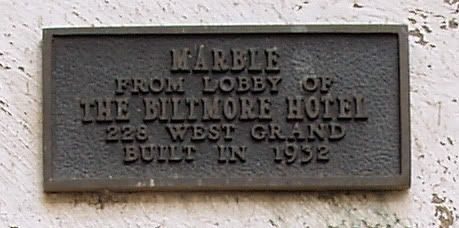
A Spire From The 1909 Baum Building
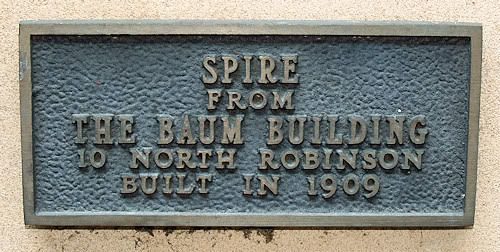
A Cupola From The 1909 Baum Building
From A Distance — The Floor Is Deteriorating
This Lady Doesn’t Handle Closeups Well
Fountain Built By The Chamber In 1977
Hmmm … so this is Oklahoma City’s mini-history museum. Of course, it was never intended to be a museum, just a nice little park where people could be around old stuff while eating lunch.
These historic artifacts need to be restored and moved into a new home.
But where? An Oklahoma City History Museum, don’t you think?
THINKING BIG: AUSTIN. Although we’d probably need to start small, it’s doubtless good to have a vision as to what an Oklahoma City History Center & Museum might become. Thanks to Mike Donovan’s comments in the comments area of this article, he presents Austin, capitol city of Baja Oklahoma, as a possibility.
I’m just beginning to explore the links he provided but have taken enough of a quick look to be impressed by what I’ve seen so far. The history center is housed in the building shown below.
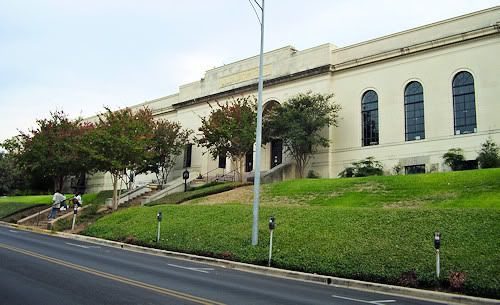
The center’s website says that the building was built in 1933 to be Austin’s first permanent public library. That statement prompts me to yearn for a return of Oklahoma City’s first permanent library, the Carnegie which opened in 1901 …
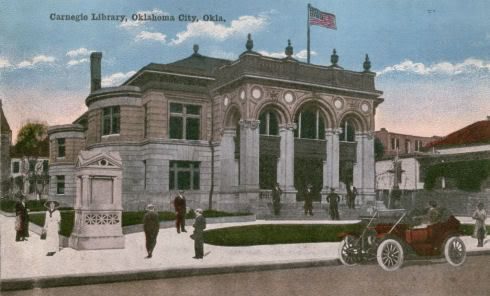
… oh, well, too bad, so sad … it was destroyed and replaced by a more modern facility in the early 1950s. Would the old Carnegie have been a great place for an Oklahoma City History Museum, or what?
I thought that you might to have a look at the Austin resources for yourself. So, here they are … click on any of the links or images below to go to the associated website.
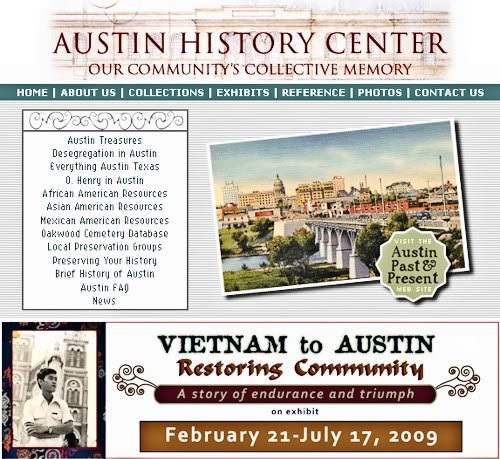
Mike said that the history center is a project of the Austin Public Libraries along with with the Austin History Center Association, which at first blush sounds like a cooperative public/private venture. However, it appears that the center is under the control of the city via its public library system and that the “Association” is merely a support group. See this About Us page.
That’s a model of one way to go, I guess, but it doesn’t exactly give me hot flashes. That would mean that the city (via its library system) would set policies, etc., bureaucratic considerations, etc. But, then, I’m just really starting to think about this and I could change my mind.
Any more comments or thoughts, Oklahoma City guys & gals?

